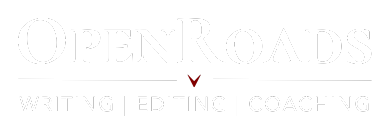A business plan for a book is the cornerstone of transforming your creative work into publishing success.
Every writer dreams of bringing their book to life—not just seeing it on the shelf but placing it in the hands of readers who genuinely connect with its words. For most of us, the ultimate goal is to make an impact, build an audience, and turn the hard work of writing into a fulfilling and sustainable career.
Yet far too many writers leave their success up to chance, relying on publishers’ whims or the mysterious algorithms. Some resist the business side of writing, claiming it might tarnish their creative spirit.
But let’s be honest—this reluctance often stems from fear of the unknown or resistance to learning what it takes to succeed.
Publishing success doesn’t happen by accident. It requires intention and strategy.
Every book is, at its core, a business; just like any business, it needs a plan to thrive. That’s where the business plan for a book (your book proposal) comes in—a strategic framework designed to position your work, connect with readers, and stand out in a competitive market.
Often seen as a tool to secure a publishing deal, a book proposal is far more than that. It’s your roadmap for turning creative vision into lasting success, equipping you with the tools to navigate and thrive in today’s publishing landscape.
Why Every Book is a Business
Your book is a work of art—infused with your creativity, passion, and unique voice. Yet, once it enters the marketplace, it also becomes a product. Like any product, it must stand out, resonate with its target audience, and deliver value.
This shift doesn’t diminish your artistry; instead, it underscores the importance of understanding your readers and presenting your book in a way that resonates with their needs.
Whether pursuing traditional or self-publishing, treating your book like a business is essential. A business plan for a book ensures that you’re equipped to navigate marketing, promotion, and competitive positioning confidently.
A book proposal embodies this approach. It bridges the gap between your creative process and the practical realities of publishing, empowering you to think about readers as customers and build genuine connections with your audience.
What Makes a Book Proposal a Business Plan for a Book?
A book proposal operates as the business plan by asking practical, market-driven questions. It provides clarity on your book’s purpose, target audience, and competitive positioning—key elements that mirror the structure of a traditional business plan:
- Overview: Defines your book’s purpose and unique hook, serving as its vision statement.
- Audience Analysis: Profiles your ideal readers and explains how your book meets their needs.
- Competitive Analysis: Evaluates similar books and highlights your book’s unique value.
- Marketing Plan: Outlines strategies to promote and connect with readers effectively.
- Sample Content: Demonstrates your writing style, tone, and approach to potential publishers or readers.
This strategic approach positions your book as a creative work and a viable product. It’s a tool that provides the direction and focus needed to turn your manuscript into a book that resonates with readers and finds success in the marketplace.
Learn more about the sections of a proposal in “How to Write a Nonfiction Book Proposal.”
Why Writing a Book Proposal Ensures Publishing Success
Writing a book proposal is an act of clarity and intention. For traditionally published authors, it signals to publishers that your book is viable and marketable. For self-published authors, it provides a roadmap to refine your ideas and execute your vision effectively.
Without a plan, your book falls to chance—a risky approach that rarely leads to success. A business plan for a book ensures that you’re taking control of your book’s journey, giving it the best chance to connect with readers and thrive in the marketplace.
Dive deeper into why book proposals matter in “Why Every Writer Should Create a Book Proposal.”
Embracing the Business of Publishing
Writers often resist the business side of publishing, viewing it as a distraction from creativity. Yet, the truth is that strategic thinking enhances creativity. It transforms a personal work into one that reaches and impacts others.
Many writers struggle with the fear of rejection. The thought of their book going unread can feel daunting and isolating. However, the audience most authors long for is rarely found within their immediate circle. You must step beyond your comfort zone to reach readers who truly need and will cherish your work.
A book proposal is the tool that allows you to do this. It bridges the gap between creation and connection by addressing practical elements like purpose, audience, and positioning. It ensures that your book doesn’t simply exist—it thrives.
Embracing the “business plan for a book” mindset is decidedly not about selling out.
Instead, it’s about stepping into the role of an advocate for your work. It’s about showing others you believe in your work and claiming your power as an author who has control of their professional narrative.
How This Fits Into Your Writing Journey
Writing a business plan for a book empowers writers to take control of their writing careers. It challenges us to approach our work as both a creative endeavor and a strategic product, ensuring our books connect with readers beyond our networks.
Relying on publishers or chance often leaves authors feeling disappointed. A proposal provides the clarity and tools to build those vital bridges to your audience, turning the act of creation into a shared experience of being read.
By adopting this mindset, you step into the dual role of artist and entrepreneur, giving your book the best chance to succeed. Whether your goal is landing a publishing deal or self-publishing with purpose, a book proposal is the key to transforming your ideas into impact.
Conclusion
Writing a business plan for a book is an opportunity to shape your book’s future with intention. It equips you with the strategy to connect with readers and ensure your work has the impact it deserves.
Publishing success doesn’t happen by accident. A clear and focused proposal provides the roadmap to move beyond your immediate circle, bridge the gap between creation and connection, and bring your vision to life.
Get started on crafting your own with detailed advice in my post, “How to Write a Nonfiction Book Proposal.”



